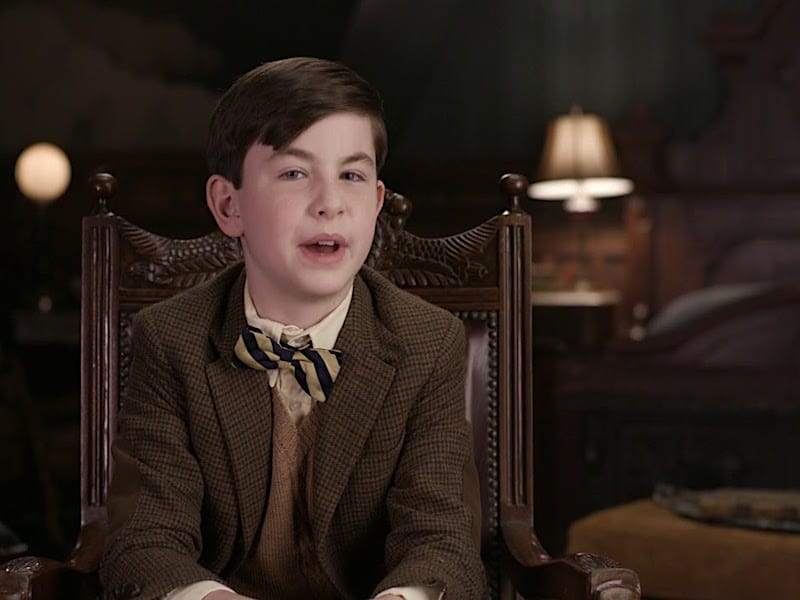Stories love orphans—orphaned protagonists especially. Considering how creatives across all mediums love to pay homage to their favorites, it would be easy to place the blame on, say, Charles Dickens and that little rascal Oliver Twist, but there is far more to it than that. You see, having orphan protagonists provides some decided narrative advantages. Looking at some of the many orphaned protagonists that have graced screens small and large, certain patterns emerge. The following are three common orphan-hero archetypes along with the unique narrative advantages they provide. Note that they are not necessarily mutually exclusive, and some of your favorite heroes (e.g. in a galaxy far, far away) might tick multiple boxes.
The Foundling
Those orphaned too young to remember their parents. Some get taken in by relatives, others adopted by strangers, others still end up on the streets or in the system, depending on the setting. Occasionally, especially in the case where they end up with relatives, they have some idea of who their parents were and what happened to them, but many more are left in the dark—except, more often than not, for some small clue, usually a trinket of some kind.
THE ADVANTAGES: Characters need motives, and there’s nothing quite like a good mystery. Foundlings have a built-in mystery to solve, and plenty of motivation to seek answers—just look at the booming popularity of DNA ancestry kits. People want to know where they come from. Even foundlings given some information about their parents from relatives or otherwise introduced as not particularly interested in their origins are often thrown a curveball to pique their interest, such as the discovery that the narrative they grew up with wasn’t strictly speaking true.
EXAMPLES: Harry Potter (Harry Potter series), Emma Swan (Once Upon a Time), Lewis (Meet the Robinsons)
The Traumatized
The Traumatized are those characters orphaned young but still old enough to remember their parents and especially how they died (or disappeared, as sometimes the case may be). The parental loss is almost always sudden—few lingering illnesses here—and often violent. The more violent the death the more likely our protagonist was there to witness it (see: approximately 90% of superheroes and 50% of supervillains). When the protagonist is present, their survivor’s guilt is usually compounded by circumstances that inspire them to feel particularly responsible for what happened, such as getting your parents to ditch the opera early because it’s triggering your bat-phobia only for them to be murdered in an alleyway. Of course, being orphaned is a generally traumatic experience regardless of age or circumstance, but the orphans of this archetype are those where the conditions of their parental loss are optimized for peak psychological impact.
ADVANTAGES: In addition to establishing a character motive, one of the cardinal rules of character development is the crafting of a character arc. For better or worse, a protagonist should undergo a personal transformation of some kind over the course of the narrative. Considering the average Hollywood movie prefers to end on a high, starting off with a perfectly content, well-adjusted individual is, generally speaking, not the best idea. The potent mix of grief and guilt experienced by the Traumatized makes provides a suitably deep, dark emotional hole for our hero to climb out of over the course of a movie or three or the span of a TV series.
Note that there is an incredibly common and highly specific fusion of the Foundling and the Traumatized in which characters are orphaned in middle childhood and yet for reasons which are occasionally justified (e.g. head trauma) but usually left unexplained, they remember strangely little or practically nothing at all of their parents. This subtype combines both the mystery of the Foundling with the psychological scarring of the Traumatized for peak plot device potential (see: Will Turner, Pirates of the Caribbean; Rey, Star Wars).
EXAMPLES: Jesse Custer (Preacher), Sansa Stark (Game of Thrones), Bruce Wayne (Batman Begins), Lewis (The House with a Clock in its Walls)
The Tumbleweed
Orphaned in late adolescence or even early adulthood, the Tumbleweed’s psychosocial development is significantly less affected by being orphaned than the other archetypes. In fact, they quite often “get over it” weirdly fast, but hey, you know what, there are adventures to be had!
ADVANTAGES: Not just anybody can go on an adventure. Many adventures require leaving normal everyday life behind, and when you’ve got responsibilities that’s not really an option. Family means responsibility, and responsibility means you don’t get to leave your everyday life behind. Of course, one could always theoretically abandon one’s family, but that’s generally regarded as a dick move and most writers want their heroes to be at least somewhat likable. Having no family makes things so much easier. AKA: Uncle Owen and Aunt Beru would 100% veto Luke running off with a hermit and a smuggler and a Wookie to rescue a renegade princess so they had to go.
EXAMPLES: Frodo Baggins (Lord of the Rings), Luke (Star Wars)

